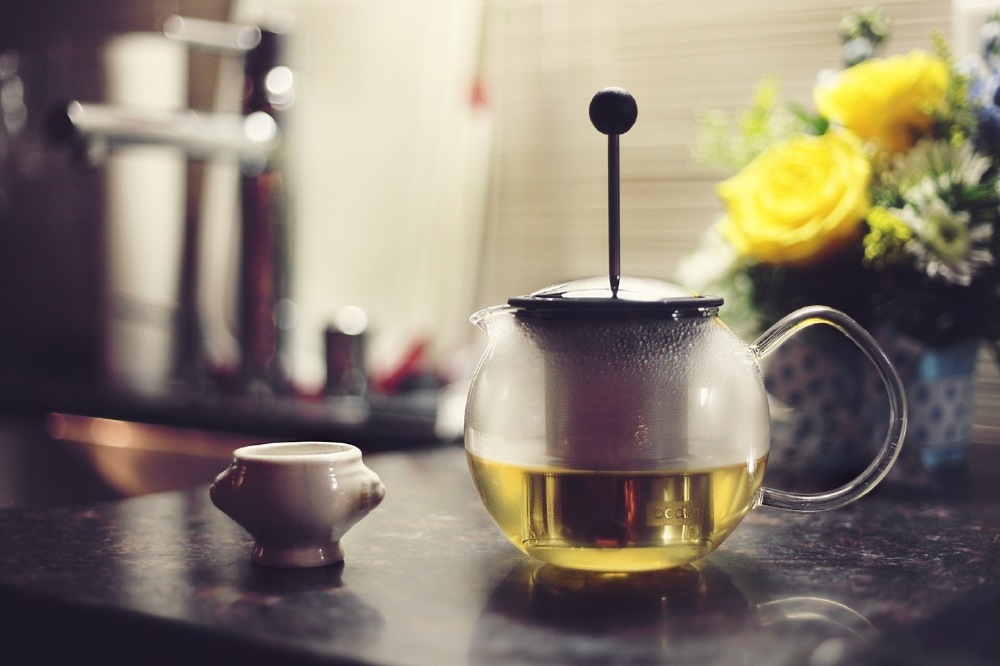Clare Jones of Bellevue Tea, is a mine of information about tea of all kinds. Here are some nuggets about green tea (in italics). Bellevue sell organic green tea in both bags and as loose leave. Check out their website at www.bellevue-tea.co.uk

Green tea has many benefits
NOT ALL GREEN TEAS ARE THE SAME:
There really is a difference between types of green tea
There are many different types of green tea with different flavour profiles and characteristics. The main types of green tea however are Sencha and Matcha and, although both 'green' they are different.
Although green tea comes from the same Camellia Sinensis plant as all other tea varieties, green tea is processed from unfermented leaves and therefore contains the highest concentration of polyphenols which are the powerful antioxidants that give green tea all its wonderful health benefits. The difference between Sencha and Matcha is basically sunshine. Sencha is grown in full sun and Matcha is grown in the shade.
The active ingredient credited with green tea's health benefits is EGCG (epigallocatechin-3-gallate) sometimes just referred to as catechins, which is a type of polyphenol. Sun exposure increases the catechin compound in green tea leaves and changes the presence of theanine to catechins.
When sun exposure is less, tea leaves contain more caffeine and L-theanine. L-theanine is a natural relaxant and is found almost exclusively in green tea. It stimulates the production of alpha waves in the brain and is associated with relaxation and mental alertness. Unlike other calming agents, L-theanine doesn't cause drowsiness. So, because it is grown in the shade, Matcha green tea offers more caffeine and L-theanine and a good balance of this allows Matcha to generate a steady energy without the jitters or crash associated with caffeine in coffee and other energy drinks. If on the other hand you want the highest amount of antioxidants, or EGCG, and want to avoid caffeine, then Sencha is the type of green tea for you.
WHAT OTHER BENEFITS CAN GREEN TEA HAVE?
Apart from the general well known and medically documented effects such as benefits to heart health boosting the immune system and helping to fight infection and some cancers, did you know:
Because the catechins (mentioned above) destroy bacteria and viruses they can help prevent tooth decay and other general dental conditions and throat infections and green tea also helps sufferers of asthma because the theophylline (another naturally occurring alkaloid in it) helps temper its severity as it acts as a relaxer for the muscles that support the bronchial tubes.
WHY DO SOME GREEN TEAS TASTE BITTER?
It's really all about how you make it as well as the type. Matcha does tend to leave less of the pungent aftertaste sometimes, but…
It's suggested the best way to drink green tea is to steep it for 2 to 3 minutes in water between 70-80 degrees C. If you leave it to brew for longer and with a hotter steep, the flavour tends to be more bitter but the upside is a lengthier brew time allows more antioxidants to be released. So, your call!
ANY OTHER INTERESTING TIDBITS OF INFORMATION ABOUT GREEN TEA?
There's a whole mine of stuff….
- Green tea was first brewed and consumed centuries before black (fermented) and oolong (semi-fermented) teas were developed….as far back as 2737 BC in China…and used for its health benefits
- Some schools of thought recommend avoiding green tea while eating as it could hinder nutrient absorption from other foods
- Between 3 and 5 cups a day is best
- Green tea is a very versatile flavour to use in the kitchen. Grind it into spice rubs, infuse into liquids or use it as a marinade or cooking liquid. It adds a piquant flavour to all sorts of dishes as well as imparting its beneficial effects. Try cooking your rice in it and add a touch of soy sauce or chilli oil, or what about poaching some pears in green tea and adding some ginger, allspice, black pepper and honey….. delicious

Tagged in Tea

